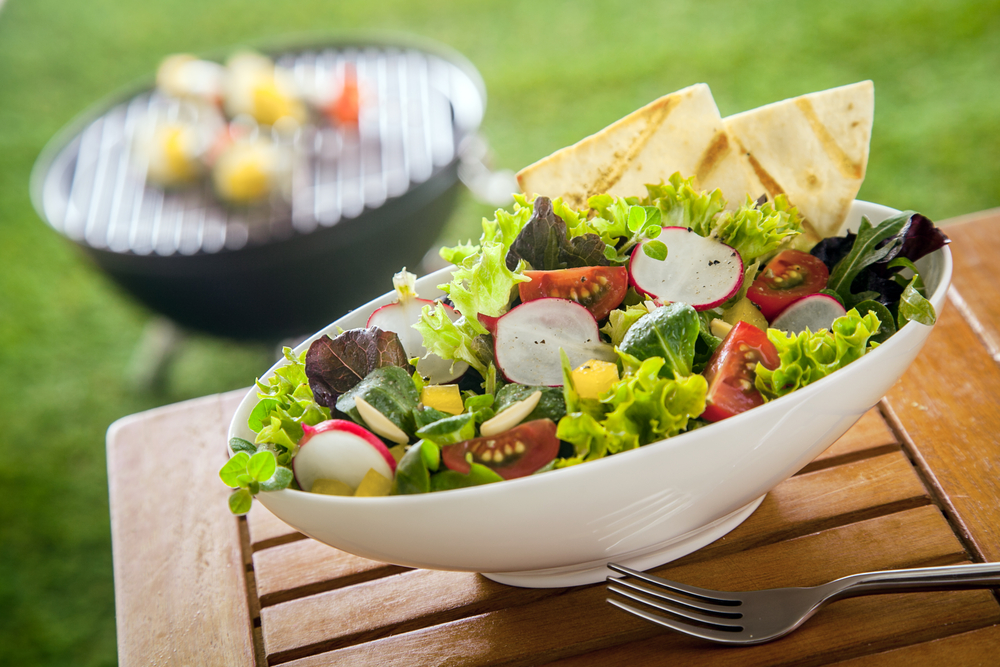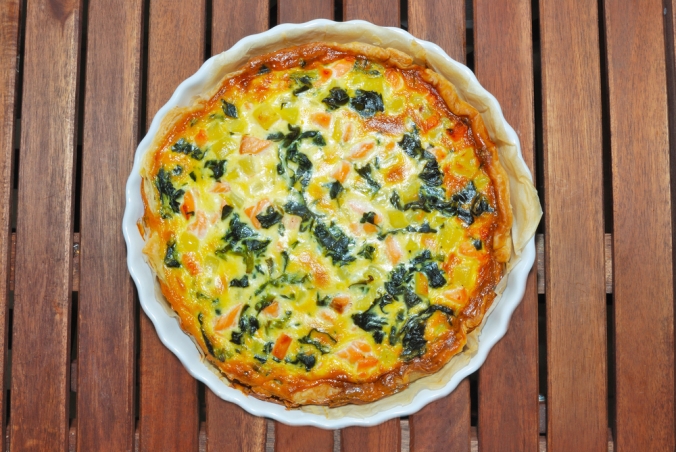
It’s nearly summer which for many of us means salad season! We tend to associate warmer weather with eating more salads, which is great. Lots of salad vegetables are in season right now, so it makes sense to be eating plenty.
It’s very easy to get stuck in a rut with salads; however, this doesn’t need to be the case. Give your salads some love with new ideas, and you’ll love them more too!
Clinical Nutritionist, Suzie Sawyer, shares her five top super salads.
Whilst some people may be lucky enough to be travelling to the Mediterranean this summer, for those with other plans, we can all still enjoy the region’s delicious salad recipes, and which bring great nutritional benefits too. Here are two ideas:
Greek Salad

It’s hard to beat a traditional Greek Salad; it’s easy to prepare, provides a wealth of nutrients and is delicious too. You just need some beautifully sweet cherry tomatoes, cucumber, green peppers, onions, olives, feta cheese and plenty of mixed herbs to sprinkle.
There’s lots of reasons why there are many populations with longer life expectancy in Mediterranean countries. Eating these types of foods regularly which are rich in colour and antioxidants, fibre, protein, and immune-boosting nutrients, provides so much of what the body needs and loves on a daily basis.
Bean salad

Beans of all types are part of the typical Mediterranean diet and are nutrient powerhouses, hence a Mediterranean Bean Salad really hits the spot. Beans are high in protein, fibre, antioxidants, energising B-vitamins and a wealth of minerals that are frequently deficient in the UK population. It’s much better to choose dried beans and soak them overnight before using, to avoid the additional salt and canning processes if possible. Other than that, it’s a free ride!
Cannellini and kidney beans are great for salads, so just chop plenty of cucumber, peppers, onions, olives, artichokes, sun-dried tomatoes and some feta or mozzarella to partner. Equally, you can add tinned tuna for a real protein hit as well as providing brain-loving omega-3s. And don’t forget plenty of herbs including fresh basil and dried oregano.
There are so many salad combinations which provide a wealth of nutrients – here are another three of my favourites:
The Liver Lover

This salad contains beetroot which is effective for liver detoxification. Beetroot also helps to provide heart-healthy nitric oxide, which is also helpful for performance athletes, as well as providing energising iron and folate.
Delicious halloumi or goat’s cheese creates the perfect partnership and provides protein too. From there, you can let your imagination run wild. Beetroot always works well alongside some other sweetness – why not try pomegranate and sliced oranges, both full of immune-boosting vitamin C. If you fancy some chopped onion, then go for it but also try adding some fresh mint and your choice of dressing.
Tomato and mozzarella

A simple tomato and mozzarella salad, using vine-ripened tomatoes for greater flavour, is a fantastic salad choice. Eating tomatoes with cheese provides fat for the health-boosting carotenoids to be better absorbed. Lycopene is especially rich in tomatoes and is a powerful antioxidant, great for male prostate health too. This dish just needs a drizzle of good quality olive oil, some fresh basil torn and scattered on the top, and plenty of salt and pepper to enjoy at its best.
Salmon Salad

A delicious salmon salad is really going to power up your brain because of the health-boosting omega-3 fats that are rich in salmon. The brain is made up of lots of omega-3 fats, hence you need to eat plenty as the body can’t make them. Try to find wild salmon if you can as this provides more antioxidants and less pollutants.
The salmon fillets can marinate with teriyaki sauce and then be lightly grilled. Meanwhile, fresh rocket leaves, sliced onion and cooked and cooled French beans or asparagus are the order of the day. You can also add tomatoes and Jersey Royal potatoes (in season now). This salad makes a great and easy midweek summer recipe that’s full of vitamin C, fibre and antioxidants which help protect skin against sun damage (amongst their many other amazing health benefits).
Love summer – love summer salads!
FOR MORE GREAT NUTRITION AND LIFESTYLE ADVICE:
Sign up to receive our blog and get a weekly dose of the latest nutrition, health and wellness advice direct to your inbox.
Follow us on Instagram @feelaliveuk or on Twitter @feelaliveuk for nutrition, lifestyle and well-being tips.
Visit us at www.feelaliveuk.com for the latest offers and exclusive Alive! content.
Follow and Chat with Suzie on Twitter @nutritionsuzie
For everything you need to know about vitamins, minerals and herbs visit our sister site Herbfacts
All images: Shutterstock















 If you’re following ‘Veganuary’ or are already vegan, then you might want to add at least a tablespoon full of ground flaxseeds to your morning cereal as they are a very rich source of omega-3s. However, if you can eat fish, especially the oily kind, then omega-3s from these sources tends to be better absorbed by the body. As an example, wild salmon at least three times a week is recommended for you to notice an improvement in mood.
If you’re following ‘Veganuary’ or are already vegan, then you might want to add at least a tablespoon full of ground flaxseeds to your morning cereal as they are a very rich source of omega-3s. However, if you can eat fish, especially the oily kind, then omega-3s from these sources tends to be better absorbed by the body. As an example, wild salmon at least three times a week is recommended for you to notice an improvement in mood.









































